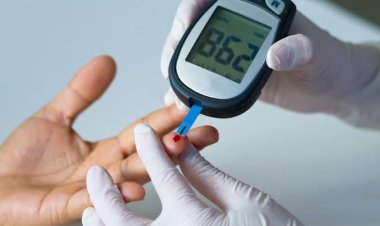Breaking Free from Unhealthy Addictions: A Guide
Addiction can be detrimental to an individual’s physical and mental health, negatively impacting their life and the lives of those around them.

Addiction is an overwhelming, persistent urge that an individual feels to engage in an action or consume a substance. Unfortunately, while some addictions can be healthy, such as an affinity for reading, some can be damaging and even deadly when left unchecked. Unhealthy addictions are the types of addictive behaviors that cause physical and psychological harm.
The range of unhealthy addictions is broad, but some of the most common types involve drugs, alcohol, and gambling. Consumption of drugs and alcohol can be damaging to the physical health of an individual as these substances can result in long-term effects on the body such as organ damage and addiction. Similarly, an unhealthy dependence on gambling can also be physically damaging as it puts people in a vulnerable position and can lead to serious financial ruin. Additionally, these unhealthy addictions can have lasting psychological impacts on an individual, leading to depression and anxiety.
The importance of breaking free from unhealthy addictions
Addiction can be detrimental to an individual’s physical and mental health, negatively impacting their life and the lives of those around them. Breaking free from unhealthy addictions is vital if individuals are to secure a healthy present and future.
Addictions can take various forms, ranging from substance abuse to various behavioral addictions. While not all addictive behavior is considered self-destructive, many lead to deterioration of personal health. This can come in the form of physical issues like heart disease and lung cancer in the case of substance abuse such as alcohol, cigarettes and other drugs, or psychological distress and personal unhappiness in the case of gambling, spending or over-exercise.
Breaking free from addictions helps to resolve these issues, and can help individuals to achieve emotional, mental and physical clarity. It also boosts confidence, self-esteem and emotional wellbeing, leading to a heightened feeling of accomplishment and control in one’s own life.
Additionally, breaking free from addiction also has wider positive effects on those around the individual. Loved ones who have watched an individual suffer can be relieved at improved relationships, greater communication and a more relaxed atmosphere, as addictive behaviors no longer interfere. This can help individuals to rebuild bridges and connect with the people they care about on a deeper level.
The process of breaking free from an addiction is never easy, and can often feel like an uphill struggle - but it is an important step to take, as it has so much to offer both the individual, and those closest to them. With a commitment to action and a full resolve to persevere even when it feels difficult, an individual can break free from addiction and achieve a full, healthy, high-quality lifestyle.
Understanding the Root Causes of Unhealthy Addictions
It is imperative to first understand the root causes of unhealthy addictions in order to develop effective treatment approaches that can help individuals break free of their addictions and turn their lives around.
One of the major root causes of addiction is an underlying mental health disorder, such as depression, anxiety, post-traumatic stress disorder, or bipolar disorder. The stress and difficult life circumstances that accompany these mental health disorders can lead to the development of unhealthy coping strategies, such as substance abuse, which can lead to addiction. Therefore, treating the underlying mental health issues is key in helping individuals break free from their addictions.
Another potential root cause of addiction is genetics. Studies have shown that addiction has a genetic component, with some individuals having a much higher risk for developing addiction than others. This is especially true for childhood disorders such as Attention Deficit Hyperactivity Disorder (ADHD), which may lead to substance abuse and eventually addiction.

Finally, environmental factors can play a role in the development of addiction. Factors such as poverty, family dysfunction, and trauma can all increase an individual’s risk of developing an addiction. Also, a lack of support from friends and family or an unstable home environment may be contributing factors to addiction.
It is important to understand the root causes of addiction in order to effectively address the problem. As more is revealed about addiction and its root causes, effective treatment approaches and interventions can be developed that can help individuals break free from their addictions, allowing them to live healthier and more fulfilled lives.
The underlying emotional, psychological, and social factors that contribute to the development of unhealthy addictions.
Addictions to drugs, alcohol, and other substances have become more prevalent in the current age, with various surveys highlighting the complex interplay of biological, behavioral, and environmental conditions at the root of their development. However, the underlying emotional, psychological, and social factors of addiction have not been widely investigated.
On the emotional level, experiences of trauma and emotional distress can lead to the development of unhealthy addictions. These emotional issues, including depression, anxiety, anger, hopelessness, and distress, can lead an individual to self-medicate and use substances to suppress these negative emotional states. As a result, constant exposure to drugs and alcohol can lead to an addiction In a survey conducted by The New England Journal of Medicine, it was found that emotional distress could lead to the onset of addiction in an individual.
Psychologically, unhealthy addictions may be the coping mechanism for an individual to avoid painful memories, stressful life events, or the surrounding environment. An individual can develop an addiction in order to fill in a void created by distress, personal deprivation, negative family patterns, low self-esteem, and feelings of worthlessness. A survey demonstrated that childhood abuse and neglect can lead to increased vulnerability to addiction in adulthood.
Socially, access to substances plays an important role in the development of unhealthy addictions. A survey conducted by the National Institute on Drug Abuse found that family and peer influences, financial resources, and other environmental variables such as the availability of substances can all contribute to the onset of addiction. Furthermore, family dynamics and home circumstances can influence an individual’s likelihood to develop an addiction disorder.
The underlying emotional, psychological, and social factors of addiction are significant contributors to the formation of unhealthy addictions. In order to tackle the issue of substance abuse, it is important to understand and address these factors in order to provide better care and support for those struggling with addiction.

The role of genetics and brain chemistry in addiction
Scientists have studied the role of both genetics and brain chemistry in addiction in order to better understand why addiction is so hard to overcome.
Genetics can play a big role in addiction. Research studies have revealed that those with family histories of substance use are more likely to become addicted themselves. Scientists believe that this is due to the transferability of genetic codes, or DNA, from parent to child that makes people more vulnerable to addictive tendencies.
Brain chemistry also plays a significant role in addiction. Drugs and alcohol produce a surge of neurotransmitters—which are chemicals that transfer messages throughout the brain—that trigger positive feelings like euphoria and extreme pleasure. This reinforces the addictive behavior and creates an overpowering desire to keep doing the activity. The brain also releases dopamine, a neurotransmitter which increases the level of pleasure an individual feels while they are doing a certain activity, often leading to an individual becoming hooked on it.
The combination of genetics and brain chemistry produces powerful effects that can lead to substance abuse and addiction. Therefore, it is important to understand both of these factors in order to create effective treatments for those struggling with addiction. Studies have shown that specialized treatment plans which focus on the individual’s genetic and Brain chemistry components are much more successful compared to other forms of treatment.
A Plan for Breaking Free from Unhealthy Addictions
Are you struggling with an unhealthy addiction and looking for ways to take back control of your life? If so, you should consider developing a plan and taking concrete steps to break free from your addictions.
The first step to breaking free from an addiction is to recognize that you have a problem. Be honest with yourself about the nature of the addiction and the effects it has on your life. Once you acknowledge and accept that you have an addiction, it becomes easier to take the necessary steps to overcome it.
The next step towards breaking free from an addiction is to create a plan. You can do this by first identifying the addictive behavior and what triggers it. Then, come up with concrete steps and strategies to help you manage and reduce the behavior.
It can also be helpful to build a support system. Talking to someone about your struggles can help you stay motivated and on track. Ask for help and support from those who understand your situation and are willing to help you stay on the path of recovery.
In addition, if you’re struggling to break free from an addiction, it’s important to practice self-care. Taking care of your body, mind, and spirit can help you reduce the cravings. Incorporate healthy activities and lifestyles habits such as eating better, engaging in physical activity, getting plenty of sleep, and spending time with family and friends.
Finally, it’s important to be patient and understanding with yourself. Recovery is a process that takes time and effort, so don’t expect overnight results. Be kind to yourself and celebrate any progress you make.
Breaking free from an unhealthy addiction is possible with the right plan and support. Start by recognizing the issue, creating a plan, and building a support system. Additionally, practice self-care and be patient with yourself throughout the process. With dedication and determination, you can reclaim your life and overcome your addictions.
The importance of having a plan and setting achievable goals
It is no secret that overcoming an addiction can be challenging and so having a plan in place and identifying achievable goals is paramount to ending unhealthy addictions.
Having a plan sets clear expectations, making the journey to overcoming addiction achievable and manageable. The first step towards formulating a plan is identifying the addiction-forming behavior which in turn lays the groundwork for creating personal goals with achievable targets and realistic outcomes. Through an analysis of the addiction-forming behavior, you can then develop a clear plan of action which should be tailored to fit the situation at hand. Establishing interim and on-going goals can help to ensure that milestones are being reached, providing a sense of accomplishment and boosting morale.

Goals should be clear and have easily identifiable end-results which are tangible, measurable and relevant. When setting achievable goals, consider the reasoning behind why you want to change your behavior and break the addiction-forming pattern. Reaching a goal provides an opportunity to demonstrate progress and it is often easier to take on more difficult tasks and objectives once a base line has been established.
Practical strategies for overcoming addiction
Addiction recovery not only requires a change in behavior but also often includes changes in lifestyle, attitude, and environment. Practical strategies for overcoming addiction can be difficult to implement and to maintain but may be effective for those who are struggling with addiction.
Building a support network is an important strategy for those trying to overcome addiction. It is beneficial to build a circle of people that includes family and friends who are supportive of your recovery. In addition to providing a sense of security and guidance while transitioning out of addiction, they can be an important source of social accountability.
Developing healthy habits is another practical strategy for recovery. Those who are recovering from addiction can benefit from engaging in healthy activities and replacing negative behaviors with positive activities. This can include anything from regular exercise to taking up a new hobby. Healthier activities are not only beneficial in developing a sense of self-care but also serve to redirect energy away from destructive activities that may have been associated with the addiction.
Creating coping mechanisms is a third key strategy for overcoming addiction. This may include focusing on managing cravings, establishing boundaries, and growing mindful of potential triggers. Coping mechanisms serve as a safety net for potential relapse and can help to maintain sobriety.
While overcoming addiction is no easy feat, practical strategies like building a support network, establishing healthy habits, and developing coping mechanisms may assist individuals in their recovery process. With a combination of efforts, it is possible to create an environment conducive to lasting recovery.
The potential benefits of seeking professional help, such as therapy or counseling
For those who are serious about wanting to end their addiction, there may be hope. Seeking professional help, such as therapy or counseling, can be beneficial for those suffering from addiction.
Through counseling, many individuals can gain insight into the causes of their addiction and develop strategies to break their addiction. There are many types of therapies available, such as cognitive-behavioral therapy, psychodynamic therapy and family therapy. All of these therapies can help people overcome their addiction by targeting the root cause and helping to develop strategies to overcome it. Counseling can also help individuals develop coping skills, manage stress and understand how to form healthier relationships.
In most cases, the counseling process is done in a group setting, which encourages communication and support among peers. This environment can provide individuals with a safe haven to learn more about their addiction and how to cope with it. Additionally, many support groups provide a social setting where individuals can form strong relationships to find help, understanding and comfort when needed.
Therapy is also an important factor in the recovery process. It provides individuals with an opportunity to learn more about their addictive behavior and identify the thoughts and feelings behind it. Therapy can also help people learn coping strategies to manage their addiction and recognize and avoid triggers. Through learning more about the addiction and challenging unhealthy thought patterns, people can gain control over their behavior and develop healthier, more sustainable habits
Staying Committed to Recovery
Recognizing that breaking free from addiction is a long-term process and requires ongoing effort and commitment is an important step towards recovery.
Addiction is a complicated and multi-faceted issue that can start in a variety of ways, from simple experimentation to a form of self-medication to cope with underlying mental health issues or trauma. Recovery from addiction depends on many factors, from the individual’s willingness to commit to recovery, to their support network and access to resources and treatment.
Breaking free from addiction is a long-term process that requires ongoing effort and commitment from both the individual struggling with addiction and those around them. Withdrawal itself is often a time of tremendous physical and psychological discomfort that requires ongoing attention and management. Beyond that, individuals will typically need ongoing support, from family, friends, healthcare professionals and peer groups, as there is no ‘quick fix’ solution. Even a successful period of abstinence can be fragile and prone to relapse without continued dedication to recovery.

Continued adherence to an overarching treatment plan, tailored to the individual’s needs, is of utmost importance. This should involve monitoring, goal setting and support to help keep on track and identify any early warning signs that could lead to relapse. The journey of recovery is challenging and often unpredictable, especially in the first year when risk of relapse is at its highest. An open and honest approach in order to identify any potential triggers or underlying issues and find healthy coping strategies is essential.
10 tips for staying motivated and avoiding relapse
Knowing that relapse is a normal and common part of overcoming any kind of addiction, it is important to incorporate strategies in one’s recovery plan that aim to prevent it and to stay motivated. The following 10 tips will help people maintain a healthy lifestyle and provide guidance and strategies for those wishing to overcome unhealthy addictions.
1. Practice Self Care: Start by practicing basic self-care, such as eating well-balanced meals, exercising regularly, getting enough sleep and maintaining personal hygiene. Taking care of one’s physical and mental health helps to reduce stress and build the foundation for an effective recovery journey.
2. Set Boundaries: Healthy boundaries such as avoiding triggers, people, and places that remind one of their former addiction are essential in order to stay on path. Setting boundaries within relationships is also important, as this will help to create a support system of understanding friends and family.
3. Stay Connected to Support Networks: Having support from family and/or close friends is invaluable when it comes to overcoming unhealthy addictions. Staying connected to one’s support system can help to create a sense of accountability, feeling of acceptance, understanding, and empathy.
4. Change Habits: Habits such as watching television, playing video games, and social media usage, can become addictive and can act as a substitute for the original addiction. Achieving success in replacing habits and activities that lead to substance use with new and healthier routines can be key to a successful recovery plan.
5. Get Professional Support: Reaching out to a professional and/or trained addiction specialists can be incredibly beneficial. Working with someone who specializes in addictions can help to identify underlying issues and assist in the development of new coping strategies.
6. Focus on Self Growth: Those in recovery are often faced with personal struggles; to combat this it is important to focus on self-growth and empowerment. Taking the time to reflect on one’s personal accomplishments and strengths is an essential part of recovery.
7. Utilize Distraction Techniques: Distraction can be an effective method for helping to lower cravings and fights impulse to use. Finding strategies such as going for a walk or calling a friend can help to temporarily remove one’s focus from their addiction.
8. Keep a Journal: Writing out thoughts and feelings can be a therapeutic exercise for those in recovery, this can provide insight into the triggers that influence addictive behavior. Writing down accomplishments in the form of daily affirmations or a gratitude journal can also be very helpful.
9. Make Time for Enjoyment: Taking time to engage in activities that bring pleasure and joy is necessary as it helps to reduce stress, anxiety and depression, which can be common barriers in recovery.
10. Connect with Others: Connecting with like-minded individuals and those who are in recovery can be a beneficial support. Active engagement with a community that is focused on addressing and expressing different aspects of addiction is essential to avoiding relapse.
Being aware of these 10 tips and integrating them into one’s recovery plan allow for a healthy transition from an unhealthy addiction. These strategies are a great guide to maintaining a longstanding motivation towards a successful recovery and helps to avoid relapse.
5 additional resources for those who want to learn more or seek additional help.
For those looking for additional help, books can be an effective way to further explore and understand personal roadblocks and how to break free. Below is a list of five books for anyone seeking to find freedom from unhealthy addictions.
1.The Freedom Model: Escape the Treatment and Recovery Trap by Stuart A. Sweet and Eric Geiselman
This book is available in both digital and paperback formats. Through the Freedom Model, a step-by-step model, Sweet and Geiselman provide insight into how to break free from destructive addictions and thoughts. This book moves away from traditional recovery models, offering an alternative that relies on discovering personal autonomy rather than relying on treatment or addiction programs.

2. Breaking the Cycle: Free Yourself from Sex Addiction, Porn Obsession, and Shame by George Collins
Collins’s book emphasizes understanding how key emotions, such as guilt and shame, are linked to sex addiction while providing tools and strategies for tackling the underlying issues. This book is comprised of exercises and interventions that improve self-awareness, insight, and motivation to break free.
3. Overcoming Addiction: 5 Strategies to Change Your Habits and Stop the Cycle of Addiction by Theodore Henderson
This book provides readers with an in-depth understanding of how addictions manifest and provides concrete five strategies to break free with the help of cognitive-behavioral therapy. Henderson’s five strategies are designed to empower individuals to take control of their thoughts and behavior, ultimately freeing them from addictive tendencies.
4. Self-Control: The Authority and Limits of the Will by Jay Ellis
This book is an exploration of self-control and its effects on addiction and other addictive behaviors. Drawing from clinical and social science research, Ellis examines the concept of “willpower” and guides readers in understanding the causes and controls of addiction, as well as how to develop and bolster successful strategies for breaking free.
5. Craving: The Deepest Human Longing by Tori Rodriguez
Rodriguez’s book takes a unique approach to addiction and explores how cravings have a deeply spiritual component. By delving further into what lies beneath cravings, readers can begin to understand the root cause and find a way to break free. The book guides those struggling with addictions to identify what nourishes their spirit so that they can begin working towards finding freedom from addiction.
In conclusion, these five books offer a diverse range of resources for any individual looking for answers and guidance when dealing with unhealthy addictions. Covering areas from cognitive-behavioral therapy to spiritual guidance, these books can help to foster an understanding of how to start breaking free from addictions.












